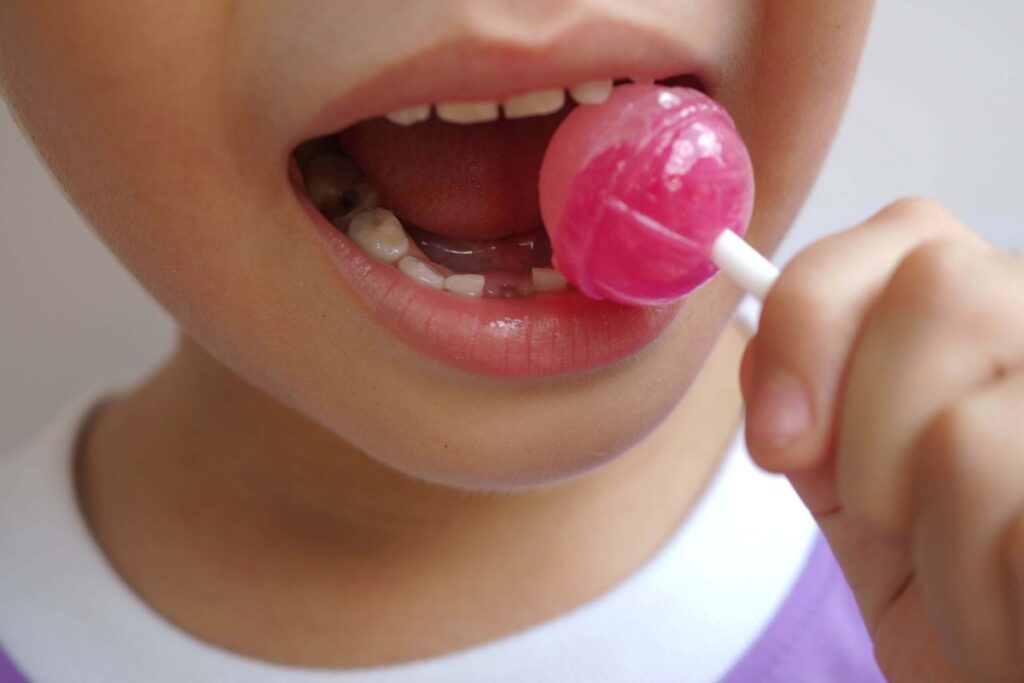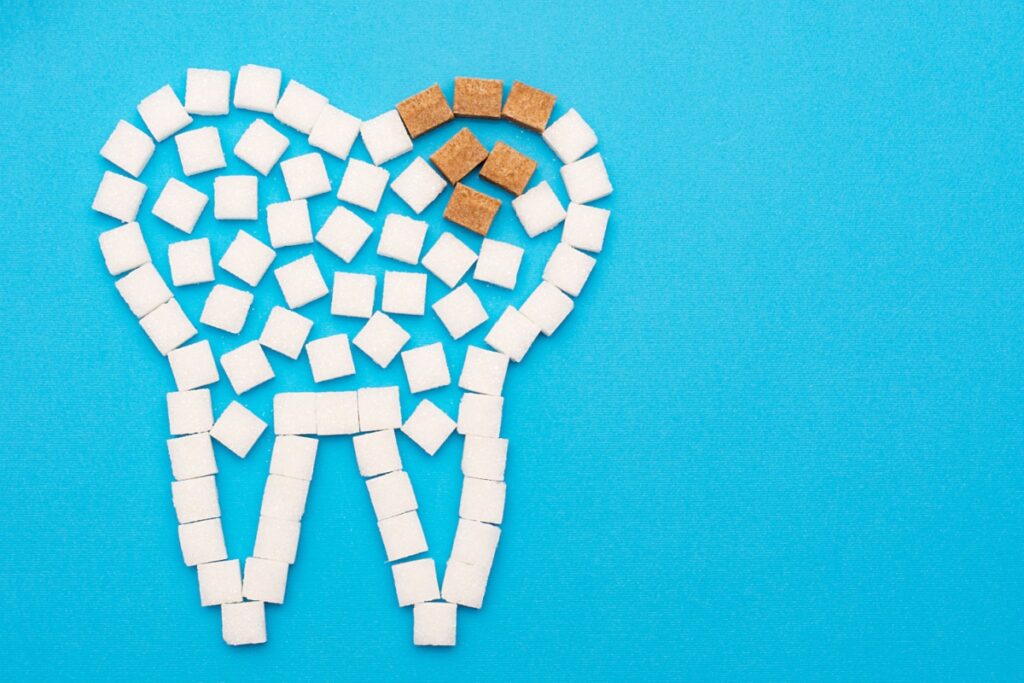You reach for a sweet treat and wonder if that moment of enjoyment comes with a price for your teeth. The relationship between sugar and cavities affects millions of people, yet many don’t understand exactly how this damage occurs. Fairlawn Dental Centre helps Ottawa families understand these connections to maintain healthy smiles.
Sugar creates an acidic environment in your mouth that weakens tooth enamel and leads directly to cavity formation through bacterial activity. Over time, repeated acid attacks break down enamel and allow cavities to form, which is why controlling sugar exposure is key to long-term oral health.
What Sugar Does to Your Teeth
Every time you eat something sweet, harmful bacteria in your mouth treat it like an all-you-can-eat buffet. These bacteria consume the sugar and produce acid as their waste product. This acid sits on your teeth and gradually dissolves the protective enamel coating.
Think of your tooth enamel like the paint on your car. Acid rain slowly strips away that protective layer, leaving the metal underneath vulnerable to rust. Your teeth work the same way — once the enamel weakens, cavities form in the exposed areas.
- Sugar feeds harmful bacteria
- Bacteria produce acid as waste
- Acid weakens tooth enamel
- Weakened enamel leads to cavities
Without strong enamel, cavities can develop quickly, especially with frequent sugar exposure.
Types of Sugar That Cause Cavities
Natural Sugars
Fruits, milk, and honey contain natural sugars that can still contribute to tooth decay. An apple provides vitamins and fibre, but the fructose inside feeds the same harmful bacteria as candy does. Dried fruits pose an even greater risk because they stick to your teeth longer.
Milk contains lactose, which bacteria can also convert to acid. However, milk also provides calcium and phosphorus that help strengthen teeth, creating a more balanced effect than other sugary options.
Added Sugars
Candy, soda, cookies, and ice cream contain concentrated amounts of added sugars that create ideal conditions for cavity formation. These foods often lack nutrients that could offset the damage, leaving your teeth vulnerable to prolonged acid attacks. Similar to how coffee affects your teeth, these sugary beverages create lasting damage.
Sticky candies like gummies and caramels cling to your teeth surfaces, giving bacteria extended access to sugar. Soda combines sugar with additional acids, creating a double threat to your enamel.

Hidden Sugars
You might consume cavity-causing sugars without realizing it. Bread, pasta sauce, salad dressing, and crackers often contain added sugars that aren’t immediately obvious. Even seemingly healthy foods like granola bars and flavoured yogurt can pack surprising amounts of sugar.
Reading ingredient labels helps you identify these hidden sources. Ingredients like corn syrup, dextrose, and maltose are all forms of sugar that feed harmful bacteria in your mouth.
How Long Sugar Affects Your Teeth
The damage doesn’t stop when you finish eating. Your mouth becomes a battleground where acid continues attacking your teeth long after you’ve swallowed that last bite of dessert.
Each sugar exposure creates a 20 to 30-minute window where acid levels remain high in your mouth. If you sip soda or snack on sweets throughout the day, you’re bathing your teeth in acid for hours. Understanding this process helps you recognize the difference between tooth stains and cavities.
- Sugar enters your mouth
- Bacteria begin feeding within minutes
- Acid production continues for 20-30 minutes
- Repeated exposure causes lasting damage
Spacing out sugary snacks and choosing water instead can significantly reduce this ongoing acid attack.
Signs Sugar Has Damaged Your Teeth
Your teeth send clear signals when sugar has started causing problems. Early detection means simpler treatments and less discomfort for you and your family.
White chalky spots often appear first, indicating that enamel has begun to weaken. If you notice increased sensitivity to hot, cold, or sweet foods, acid has likely penetrated deeper into your tooth structure. These symptoms require professional evaluation to prevent complications from untreated cavities.
- White spots on teeth
- Tooth sensitivity
- Pain when eating sweets
- Visible holes or dark spots
- Bad breath that won’t go away
Protect Your Family’s Smile from Sugar-Related Damage
Understanding how sugar affects your teeth empowers you to make confident choices for your family’s oral health. At Fairlawn Dental Centre, our team provides comprehensive preventive care and personalized treatment options to keep Ottawa families smiling with confidence.
Ready to take the next step in protecting your teeth from sugar-related damage? Schedule your family’s dental checkup today and let us help you maintain strong, healthy smiles for years to come.










